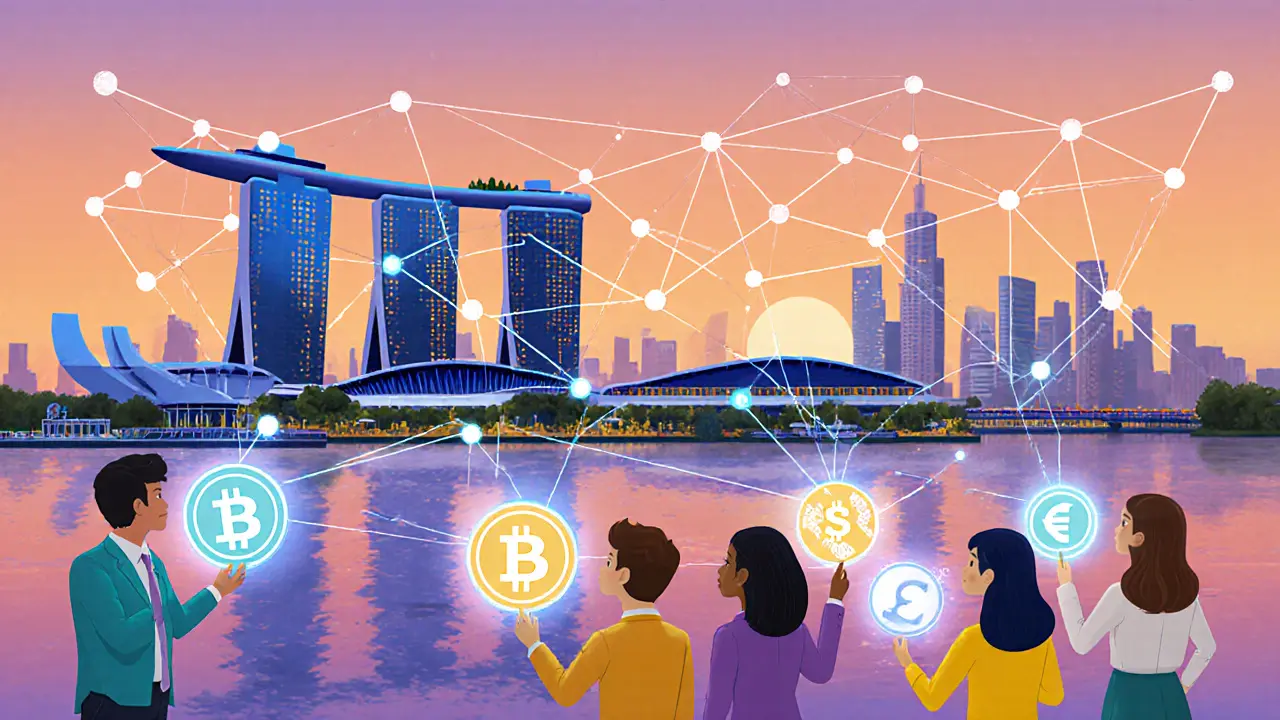Singapore Crypto Regulations
When navigating Singapore crypto regulations, the comprehensive set of rules that govern digital assets, exchanges, and token service providers in Singapore. Also known as MAS crypto framework, they shape how crypto businesses operate in the city‑state. Monetary Authority of Singapore (MAS), the national regulator that issues licenses and enforces compliance oversees the entire ecosystem, while Digital Token Service Provider (DTSP) licensing, a mandatory authorization for firms offering token issuance, custody, or exchange services forms the backbone of the regulatory landscape.
At the core, Singapore crypto regulations encompass stringent licensing requirements that any crypto‑related business must meet before launching. DTSP licensing demands proof of adequate capital, robust governance structures, and a clear risk‑management framework. Companies that can demonstrate transparent ownership and qualified senior staff gain faster approval, while those lacking these attributes face lengthy reviews or rejection. This licensing model aims to protect investors and maintain market integrity.
Key Compliance Pillars
Another pillar is Anti‑Money Laundering (AML) compliance, the set of policies that require crypto firms to monitor transactions, verify customer identities, and report suspicious activity. MAS enforces the Travel Rule, meaning every crypto transaction above a certain threshold must include source and destination information. Firms that integrate real‑time AML screening tools can automate reporting and avoid hefty fines. The rule not only curbs illicit flows but also aligns Singapore with global standards, making the market more attractive to reputable players.
The stablecoin regulatory framework, guidelines that dictate how stablecoins can be issued, backed, and traded within Singapore adds another layer of specificity. Issuers must hold fully collateralized reserves, undergo regular audits, and disclose their valuation methodology to MAS. This transparency helps prevent the kind of peg failures seen elsewhere and reassures users that their stablecoins maintain value stability. As a result, Singapore has become a testing ground for regulated stablecoin projects.
For exchanges, the combined effect of licensing, AML, and stablecoin rules means they must build compliance teams, adopt KYC solutions, and maintain audit trails. Many platforms choose to partner with local service providers that specialize in regulatory reporting, saving time and reducing error risk. The overall environment encourages responsible innovation while keeping bad actors at bay.
Now that you understand the main components—MAS oversight, DTSP licensing, AML obligations, and the stablecoin framework—you’re ready to explore the detailed articles below. They dive into specific exchanges, airdrop nuances, and practical compliance tips that can help you navigate Singapore’s crypto landscape with confidence.
Singapore Crypto Regulations & Licensing Framework Explained
Learn how Singapore's crypto regulations work, from MAS licensing tiers to the 2025 FSMA overhaul, AML rules, and stablecoin guidelines-all in plain language.
